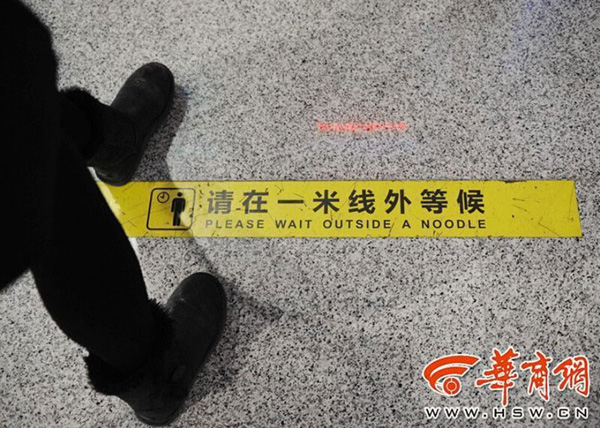 |
|
The request "Please wait behind the yellow line" is translated as "Please wait outside a noodle" at the Xi'an North Railway Station in Northeast China's Shaanxi province.[Photo/www.hsw.cn] |
The government has been urged to standardize the translation of public signs and notices, Xinhua reported on Wednesday.
CPPCC member Tang Jin, a national political adviser from central Hubei province, said as the country increasingly interacts with the international community, the problem of badly translated signs becomes of mounting importance.
She said awkward and incorrect translations are common in many areas across the country.
Tang gave examples she has seen while traveling around the country. A reception desk, or zong tai in Chinese, was wrongly translated as "total desk" and exit, or chu kou in Chinese, was incorrectly translated as "export".
She said correct translation is a sign of a nation's cultural capability and the problem should be taken seriously at government level.
Tang suggested that government departments offer financial and personnel support to create a standard manual of public sign translations and promote it across the country.
China has already learnt costly lessons from the casual use of English.
Beyond confusing public directories, and hilarious - or sickening - renditions of restaurant menus, the lack of accuracy in business documents has become the latest stumbling block to the sale of China's high-speed trains, something the country is most proud of and eager to sell around the world.
Zhang Minyu, vice-general manager of overseas market with CSR Zhuzhou Electric Locomotive Co., told China Economic Weekly late last year that the company was once "one step away from winning a bid in north Europe in 2012" but finally lost the contract due to an error in translation of the construction plan.